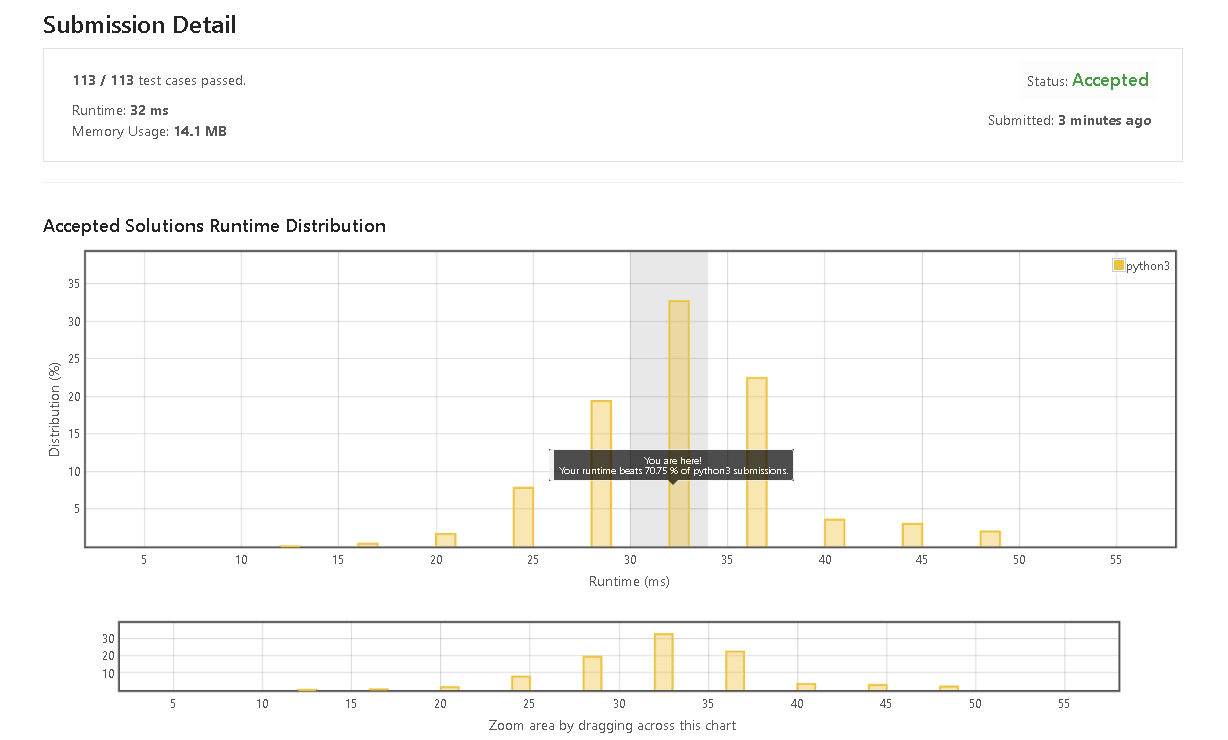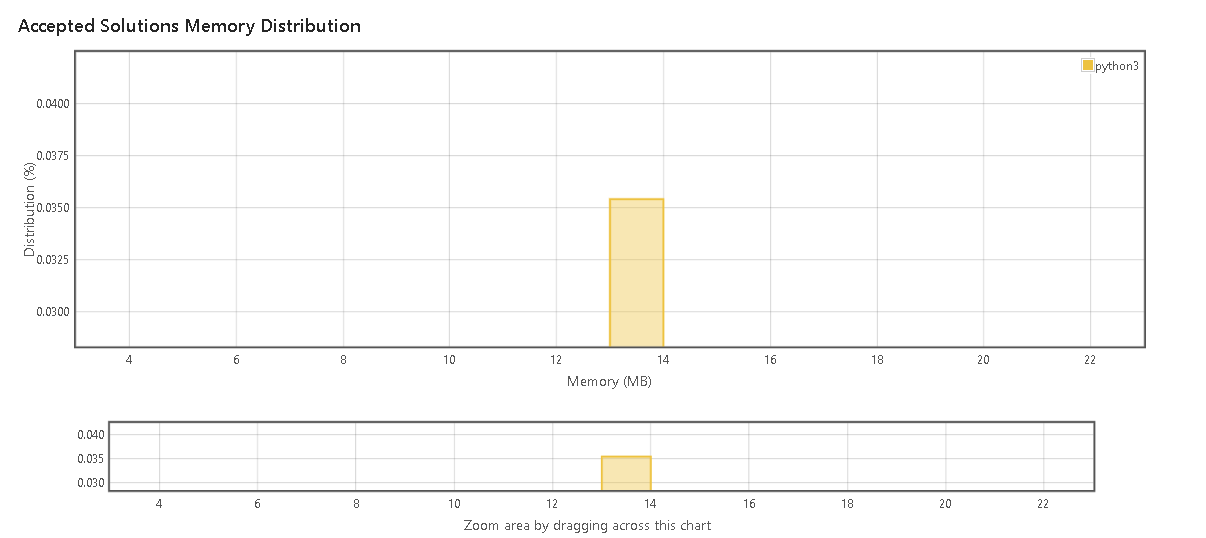| 일 | 월 | 화 | 수 | 목 | 금 | 토 |
|---|---|---|---|---|---|---|
| 1 | ||||||
| 2 | 3 | 4 | 5 | 6 | 7 | 8 |
| 9 | 10 | 11 | 12 | 13 | 14 | 15 |
| 16 | 17 | 18 | 19 | 20 | 21 | 22 |
| 23 | 24 | 25 | 26 | 27 | 28 | 29 |
| 30 |
- 금융문자분석경진대회
- 더현대서울 맛집
- 데이콘
- 자연어처리
- AI 경진대회
- Kaggle
- 맥북
- 파이썬
- leetcode
- SW Expert Academy
- 캐치카페
- 프로그래머스
- Docker
- dacon
- 프로그래머스 파이썬
- 편스토랑
- Baekjoon
- ubuntu
- Real or Not? NLP with Disaster Tweets
- 우분투
- gs25
- 편스토랑 우승상품
- hackerrank
- github
- Git
- programmers
- 백준
- ChatGPT
- 코로나19
- PYTHON
- Today
- Total
솜씨좋은장씨
[leetCode] 27. Remove Element (Python) 본문

Given an array nums and a value val, remove all instances of that value in-place and return the new length.
Do not allocate extra space for another array, you must do this by modifying the input array in-place with O(1) extra memory.
The order of elements can be changed. It doesn't matter what you leave beyond the new length.
Clarification:
Confused why the returned value is an integer but your answer is an array?
Note that the input array is passed in by reference, which means a modification to the input array will be known to the caller as well.
Internally you can think of this:
// nums is passed in by reference. (i.e., without making a copy)
int len = removeElement(nums, val);
// any modification to nums in your function would be known by the caller.
// using the length returned by your function, it prints the first len elements.
for (int i = 0; i < len; i++) {
print(nums[i]);
}
Example 1:
Input: nums = [3,2,2,3], val = 3
Output: 2, nums = [2,2]
Explanation: Your function should return length = 2, with the first two elements of nums being 2.
It doesn't matter what you leave beyond the returned length. For example if you return 2 with nums = [2,2,3,3] or nums = [2,3,0,0], your answer will be accepted.Example 2:
Input: nums = [0,1,2,2,3,0,4,2], val = 2
Output: 5, nums = [0,1,4,0,3]
Explanation: Your function should return length = 5, with the first five elements of nums containing 0, 1, 3, 0, and 4. Note that the order of those five elements can be arbitrary. It doesn't matter what values are set beyond the returned length.Constraints:
- 0 <= nums.length <= 100
- 0 <= nums[i] <= 50
- 0 <= val <= 100
Solution
class Solution:
def removeElement(self, nums: List[int], val: int) -> int:
answer = [num for num in nums if num != val]
for i in range(len(answer)):
nums[i] = answer[i]
nums = nums[:len(answer)]
return len(nums)


SOMJANG/CODINGTEST_PRACTICE
1일 1문제 since 2020.02.07. Contribute to SOMJANG/CODINGTEST_PRACTICE development by creating an account on GitHub.
github.com
'Programming > 코딩 1일 1문제' 카테고리의 다른 글
| [leetCode] 217. Contains Duplicate (Python) (0) | 2020.10.26 |
|---|---|
| [leetCode] 179. Largest Number (Python) (0) | 2020.10.25 |
| [leetCode] 216. Combination Sum III (Python) (0) | 2020.10.23 |
| [leetCode] 206. Reverse Linked List (Python) (0) | 2020.10.22 |
| [leetCode] 1078. Occurrences After Bigram (Python) (0) | 2020.10.21 |





